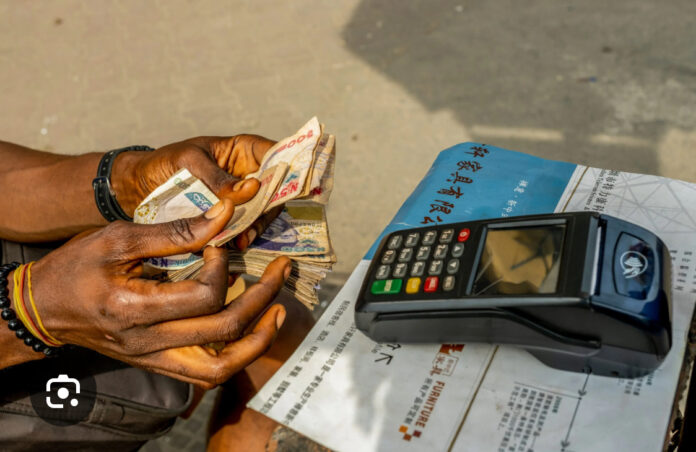The Central Bank of Nigeria (CBN) requires all Payment Service Providers to route all electronic or physical transactions from Point of Sale (PoS) terminals at merchant and agent locations through an approved CBN Payment Terminal Service Aggregator.
Read also: Opay, others to charge N50 levy on electronic money transfers in Nigeria
30 days deadline to comply with the directive
Additionally, it set a 30-day deadline for service providers to adhere to the updated Point of Sale routing requirements. In order to ease worries about the centralisation of these transactions under a single organisation, this measure attempts to improve the monitoring of electronic transactions throughout Nigeria and decentralise PoS transaction routing.
The central bank announced on Thursday that all point-of-sale (PoS) transactions from merchant and agent locations must subsequently be routed through any PTSA approved by the CBN. Oladimeji Yisa Taiwo signed the circular on behalf of the CBN’s Payments System Management Department.
The circular stated: “In August 2011, the Central Bank of Nigeria awarded Nigeria Interbank Settlement System Plc a Payment Terminal Service Aggregator license to fulfil the goal of tracking electronic transactions in Nigeria. To support the aforementioned, the CBN instructs acquirers to use any CBN-licensed Payment Terminal Service Aggregator for all transactions from PoS terminals at merchant and agent locations, regardless of whether the terminals are electronic or physical.
“PTSAs are required to send PoS transactions to only processors certified by the relevant Payment Scheme, nominated by the Acquirer, and licensed by the CBN.”
Read also: Binance Executive trial: Court summons Nigeria’s Central Bank
Previous regulatory directives
This new directive comes after the legal deadline for PoS agents to register their firms with the Corporate Affairs Commission expired on September 5th.
Despite a legal challenge to the regulation, the CAC recently declared that it has started implementing severe measures, such as closing down PoS companies that neglected to register.
The Central Bank of Nigeria’s intentions to forbid trading in cryptocurrencies or virtual money are coupled with the order on PoS company registration, issued in the wake of numerous fraud occurrences utilising PoS terminals.
A Nigeria Inter-Bank Settlement System Plc report states that 26.37% of fraud incidents 2023 were related to PoS terminals.
Recently, Nigeria’s Federal Inland Service (FIRS) directed Fintechs to start charging an electronic N50 levy on transactions from N10,000 and above, which caused uproar in the country.




